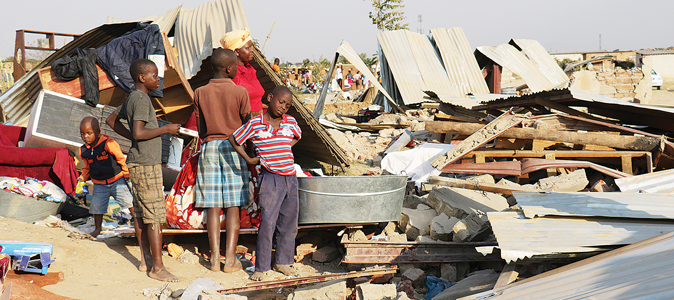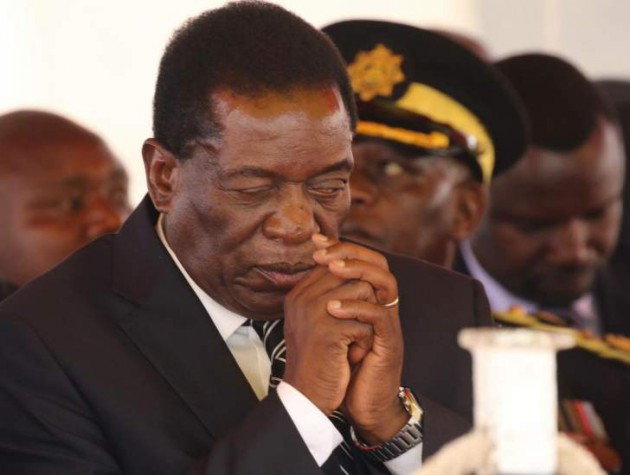
Eight years ago Miriam Phiri moved into her newly built house in Chitungwiza’s Zengeza 4 Extension.
social commentary
with Moses Mugugunyeki
Despite having purchased the ground on which she built her “mansion” from a “third party”, Phiri claimed to have the blessings of the local authority.
She is among thousands of home seekers who have fallen prey to land barons masquerading as “real estate agents” who operate outside Chitungwiza Municipality head office in Zengeza 3.
“I was referred to someone outside the council office who could facilitate a piece of land to build a house,” said Phiri, a single mother of three.
“We went to some area where construction of houses was underway, but I refused to buy because the area was rocky until I chose here.
“Transactions were done and the paper work was ‘authentic’ because the documents had ‘council stamps’.”
- Chamisa under fire over US$120K donation
- Mavhunga puts DeMbare into Chibuku quarterfinals
- Pension funds bet on Cabora Bassa oilfields
- Councils defy govt fire tender directive
Keep Reading
Phiri never suspected that her newly acquired home was an illegal structure until the day council officials visited her place, two years after completion of the structure.
“Everything was done smoothly, from the payment to construction of the house. It was only in 2013 that I discovered that the papers were not in sync with council records,” she said.
“I visited the council’s housing department on numerous occasions until they agreed to regularise the stand in 2017. I got the stand number after I had paid what they termed regularisation fee.”
However, despite “regularising” her house, Phiri fears her structure was among thousands of homes earmarked for demolition.
“Although we haven’t received any communication from the council, we were advised that our homes are part of structures earmarked for demolition because they are built in wetlands,” she said.
According to sources within the local authority, there are about 40 000 residential stands allocated to home seekers in Chitungwiza which are not in the council database.
In October, Chitungwiza Municipality threatened to demolish thousands of houses built on spaces reserved for clinics, churches, schools, cemeteries, recreational activities and roads, while others were constructed under high-voltage electricity pylons.
The areas included Zengeza 4 wetland, known as PaChief, where Phiri’s house was built.
Although Chitungwiza Municipality later resolved to stop demolition of the houses after Zimbabwe Lawyers for Human Rights (ZLHR) threatened to sue the local authority for violating people’s fundamental rights, residents feel a similar crackdown against illegal structures like what happened in Budiriro recently was likely to happen.
Early this month Harare City Council, acting on orders from the Local Government ministry, embarked on a crackdown against illegal housing in Budiriro 5, in a move reminiscent of the 2005 Operation Murambatsvina (Restore Order), which left hundreds of thousands of people homeless.
The clampdown has met with harsh condemnation from the community, church groups and non-governmental organisations (NGOs) as well as the international community.
While the government, through provincial development coordinator for Harare Metropolitan Tafadzwa Muguti, said the campaign was meant to restore sanity, little has been considered on the aftermath of the exercise and possibly the plight of women and children.
The demolitions infringe on the rights of the residents to decent housing and shelter, freedom from arbitrary evictions as espoused by the African Charter on Human and People’s Rights and the UN Charter.
Like Operation Murambatsvina — a government campaign which demolished structures across the country and left over 700 000 people homeless — there is a high likelihood that women and children will bear the brunt of the demolitions.
“We were told that the council will after the rainy season move in and destroy our houses,” said Phiri.
“This is my only place of residence, and I will have nowhere to go after these demolitions.
“I am a widow and looking after three children. My late husband had saved money to buy this residential stand and now that he is late, I am told to vacate this place with nothing.”
Phiri’s quandary is similar to that of a number of other women and children whose homes face demolition.
Government last week said demolitions of illegal settlements will continue and urged residents that have received eviction notices from councils to seek alternative shelter.
Homelessness affects every facet of women’s and children’s lives. The experience of homelessness impedes their emotional, social and behavioural development.
In general, homeless women and children consistently exhibit more health problems. Environmental factors contribute to their poor health and they are vulnerable to infectious diseases.
Women and children without proper homes are at great risk of all forms of harsh weather. We are in the rainy season and demolitions with no alternative accommodation are cruelty in itself.
“Demolitions affect everyone; men, women and children, who overnight find themselves uprooted and in most cases without alternative shelter,” said Dorothy Chirwa Tumbo, a humanitarian activist and researcher.
She said women were the most affected since they are directly responsible for the home, family and welfare — cooking and washing clothes.
Chitungwiza Residents Trust (Chitrest) said the imminent demolitions in the town paint an overwhelmingly bleak picture of women and children’s current and future status.
“It is our main worry that residents are being punished this way by an elected government, the major victims who suffer most are women, children and those people living with disabilities,” Chitrest spokesperson Alice Kuvheya said.
“These disadvantaged groups are the ones who bear the brunt of politics at play with our lives.
“Children’s problems range from displacements, to dropping out of school and traumatic experiences among others. People living with disabilities and the terminally ill are exposed to injury and in the case of the terminally ill some might actually die. We condemn these illegal actions, more so during this rainy season.”
From the look of things, there are no intervention strategies in place to deal with the many effects of the demolitions.
In the aftermath of Operation Murambatsvina, government embarked on Operation Garikai/Hlalani Kuhle in a bid to address the suffering of victims of the so-called clean-up exercise.
The “operation”, however, failed to provide better housing for people who lost their homes during Murambatsvina.
Under Operation Garikai/Hlalani Kuhle, government only constructed 3 325 houses compared to the 92 460 homes destroyed during Operation Murambatsvina.
While the idea was meant to ensure priority access for homeless families, a lot of women and children did not benefit since the houses were allocated based on one’s political affiliation.
It looks like the current exercise has no facility that can mitigate the effects of homelessness, such as supportive housing and compensation.
The government says land barons should compensate those whose property is being destroyed, but from the look of things, there is no land that has been identified to relocate the affected families.
These land barons have no financial capacity to relocate the affected families considering their high level of corruption in the allocation of residential stands.
Government’s failure to provide alternative land and giving the responsibility of servicing stands to corrupt land barons will have a negative bearing on the lives of women and children. It is a violation of the Constitution.
Section 28 of the Constitution states that: “The State and all institutions and agencies of government at every level must take reasonable legislative and other measures, within the limits of the resources available to them, to enable every person to have access to adequate shelter.”
l Feedback e-mail: mmugugunyeki@standard.co.zw or Twitter: @mmugugunyeki2










